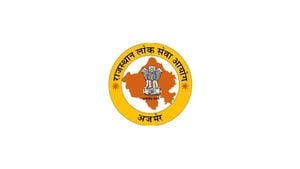Hyderabad: The recent bird flu outbreak is sending shockwaves through the poultry industry of Andhra Pradesh and Telangana, raising concerns and drastically impacting chicken sales and consumption. Official reports reveal the death of nearly 5.5 lakh chickens primarily due to the H5N1 avian influenza virus, causing panic among consumers and farmers alike.
The crisis hit its peak as thousands of poultry birds died each day, prompting authorities to take immediate action. Strict bans on chicken consumption have been enforced across several districts, with both Andhra Pradesh and Telangana governments setting up check posts at state borders to prohibit poultry transport from neighboring regions. To aid the public, officials launched a toll-free helpline (9100797300) to report sick or dead birds, urging swift burial of infected fowl to curb contamination risk.
Mass deaths have particularly affected poultry farms. For example, on February 12, 2025, at least 800 birds were discovered dead at one poultry farm, leading to significant losses for farmers like Shiva, who leases the farm. Veterinary officers initially ruled out bird flu as the cause of death, hinting at the presence of another virus. Still, this uncertainty has prompted farmers to remain vigilant amid growing fears of the outbreak.
The economic blow to the poultry sector is evident, as fears over the bird flu have led to steep declines—some reports indicate up to 40% drop in chicken sales across markets. Just weeks ago, chicken was selling for Rs 300 per kg; today, prices have fallen to Rs 150 per kg, but the markets have not revived, leaving vendors and suppliers at risk of financial strain.
With consumers skittish about the safety of poultry, many are gravitating toward alternative proteins such as mutton, fish, and prawns. Mutton prices remain elevated, but consumers are willing to pay more, avoiding chicken to protect their health. Indeed, fish markets are witnessing surging foot traffic as seafood grows increasingly popular among non-vegetarians. Reports from markets in Hyderabad, Vijayawada, and Visakhapatnam highlight this behavioral shift.
Experts have weighed in on the situation, reassuring the public about the relative safety of consuming properly cooked poultry products. Dr John Jacob, renowned virologist from CMC Vellore, emphasizes: "Bird flu is not a direct threat to humans... but vigilance is important." He cautions consumers to prepare chicken and eggs at appropriate temperatures—cooking chicken at 165 degrees Fahrenheit or 75 degrees Celsius and ensuring eggs reach at least 80 degrees Celsius for safety.
The advice is clear: those handling poultry should adopt rigorous hygiene practices, washing hands after handling uncooked products and avoiding mixing raw poultry with other food items. This careful approach can significantly reduce the risk of contamination during outbreaks. According to Dr Rajeev Jayadevan, "We have no evidence... people can get bird flu from eating properly cooked chicken or eggs."
Despite these reassurances, fear and misinformation have driven consumers' decisions. Shop owners report major drops in sales, with Ibrahim Khan expressing frustration: "People stopped buying chicken overnight when the news broke. We’re struggling with losses because of fear, not facts." Officials have suggested residents reduce chicken consumption for now, reinforcing public hesitance.
The bird flu outbreak has broader ramifications for the poultry sector. If not brought under control soon, recovery could take months, leaving many farmers pleading for government assistance to weather the financial fallout. Continuous monitoring of poultry health by field staff is underway, alongside media campaigns to educate the public on safe consumption practices.
While officials and health experts stress there is no current public health crisis, they remain attentive, aware of the potential for future mutations of the virus. A recent implication saw isolated human infections due to direct exposure to affected birds, illustrating the risks farmworkers face. Vigilance ensures both consumers' safety and the sustainability of the poultry industry.
For the time being, the looming question remains—should consumers keep avoiding chicken altogether? While the fear is understandable, experts encourage the public to stay informed, stressing the importance of proper cooking practices. With sustained awareness, authorities and consumers alike can navigate through this crisis, ensuring both food security and public health safety.



